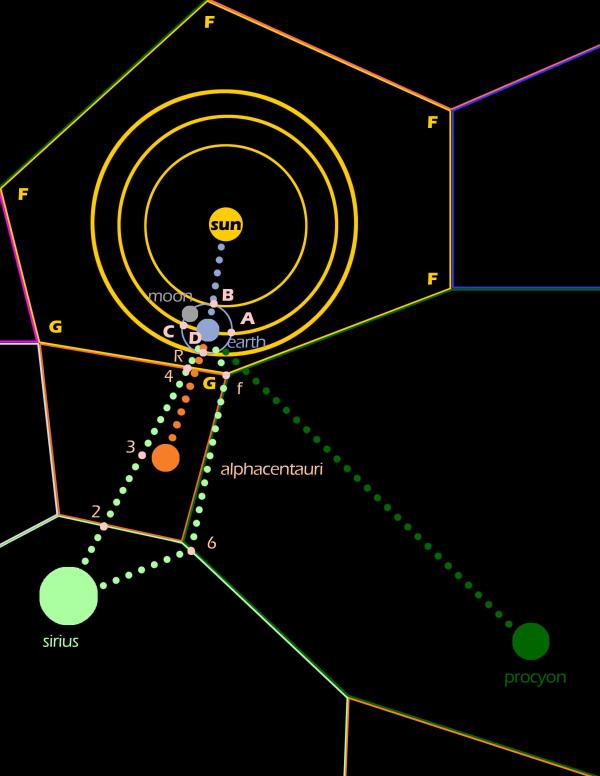The Truth About Matter
Table of Contents
Superphysics Note
4. The nature of matter or body is in it having aetherspace [extension] as length, width and height alone.
Superphysics Note
The nature of matter or body in general does not consist in anything sensory.
The nature of matter or body is in it being an [aethereal] substance extended in length, width, and height.
Hardness is just the ability of hard bodies to resist the motion of our hands on coming into contact with them.
But if all bodies moved away from our hands whenever we tried to touch them, then we would never experience hardness.
- Yet those bodies would still be bodies to us.
Therefore, the nature of bodies does not include hardness.
In the same way, weight, colour, and all the other qualities of this sort, which are perceived in corporeal matter, can be removed from matter entirely.
It follows that the nature of body:
- depends on none of these
- consists solely in its being a substance that has aetherspace [extension].
For if we examine any body, we may think that it has none of these qualities, yet still we know that it is still a body as long as it has length, width, and depth.
Hence, it follows that in order to exist, a body needs none of those qualities in any way, and that its nature consists solely in being a substance that has extension.
5. The nature of body as aetherspace [extension] is obscured by the opinions on expansion and void
Two reasons prevent us to accept that the nature of body consists in aetherspace [extension] alone.
- People think that expanded bodies have more aetherspace than when not expanded.
Some have even separated a body’s [aethereal] substance [idea] from its own physical size, and that physical size from its aetherspace [extension].
Superphysics Note
- People do not understand what the aetherspace is [extension as length, width, and height].
People think that the aetherspace is the same as space, or even as void space.
This makes them think that the aetherspace is the same as nothing.
6. How does contraction happen?
If we watch our own thoughts, we will discover that the expansion or contraction of an idea-body is merely a change of its shape.
A body expands when it gets filled by some other body through the gaps or spaces within it.
A body contracts when the gaps or spaces within it get smaller.
- When all the space and gaps are gone, then the body cannot contract any further.
Yet in both cases, it has the same aetherspace.
We should not think that the space that expands the body is the aetherspace.
- Instead, that space is another body [as the virtual space particles]

Similarly, a sponge full of water expands.
- But its aetherspace [extension] stays the same.
- It is really the gaps or spaces within the body that become larger
is different from a dry sponge because the wet sponge has wider pores.
- This makes its body more diffused over a larger physical space.
- But this does not mean that each sponge-particle has greater metaphysical space when wet than when dry
Superphysics Note
7. This is the best way to explain Contraction and Expansion
I do not know why people say that bodies are expanded by an an increase in their material quantity rather than an increase of space, like a wet sponge.
When air or water expands, we cannot see:
- the gaps between the air or water particles getting larger
- the substance [space particles] that fills them
But it is better to explain expanding bodies to be filled with more space or some other invisible substance than for their matter to increase.
We do not need our senses to perceive all the invisible substances around us.
It is not possible to conceive of any increase in size or aetherspace [extension] except by adding something that itself has size and aetherspace [extension]